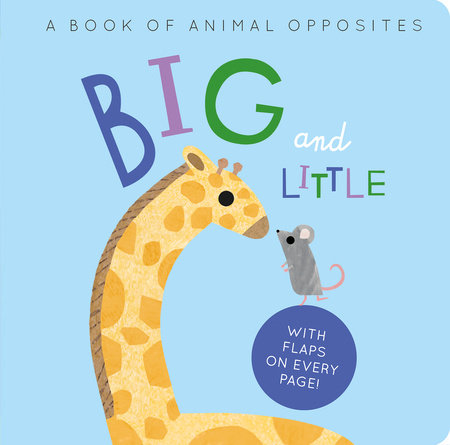This follow-up to A to Z: An Alphabet of Animals features a pair of animals on each spread to introduce the concept of opposites in this fun lift-the-flap book.Animals representing opposites such as big and little, light and heavy, quiet and loud, and more comparisons are hiding on each page of this fun lift-the-flap book! Children meet a variety of animals and bugs, from an owl and a turtle to bees and a chameleon, as they open the flaps to see the size comparisons of the animals.
PERFECT FOR: Young fans of animals and bugs
FUN AND EDUCATIONAL: Introduces the early concept of opposites featuring adorable characters in an exciting hide-and-seek format
INTERACTIVE: Large lift-the-flaps are ideal for little hands
On sale: June 4, 2024
Age: 2-5 years
Grade: Up to Kindergarten
Page count: 10 Pages
ISBN: 9781664350953
Harriet Evans works in children's publishing and spends her days researching cool animal facts, imagining awesome adventures, and drinking copious amounts of tea.
Linda Tordoff is a designer and illustrator. She graduated from Staffordshire University in 2001 with a first class degree in surface pattern design. After graduating, she worked in-house for a greeting card company. Since having children, she has worked from home as a freelance designer and illustrator. Linda can usually be found with a cup of tea in her studio at home, where she lives with her three children, a rescue dog, and a cat!
★
Toddler-PreS–Opposites come to life with flaps for young hands to engage with on every page. “Slim and Plump” feature a pufferfish unexpanded and then all puffed out. Illustrative details make the meanings clear; the well-designed flaps reinforce the concepts. VERDICT Perfect engineering meets engaging content—this is highly recommended. --School Library Journal,
starred review
In this clever lift-the-flap concept book, young viewers can explore animal opposites in a variety of environs. A “slow” sloth is visible hanging from a vine. When the sloth-shaped flap is lowered, we see the opposite—a “fast” leopard running beneath the vine. Commonly known critters are depicted (“clean” cat and “dirty” pig) along with the less frequently seen (“rough” pangolin and “smooth” otter). Some flaps can also change the setting when adjusted—the “hot” sub-Saharan African hippo flap transforms into “cold” Arctic polar bear when opened left. Tordoff’s illustrations, which use textured swaths of muted colors, are simultaneously sophisticated and recognizable for those still acquiring language.--Horn Book

















